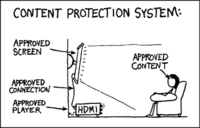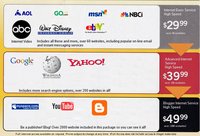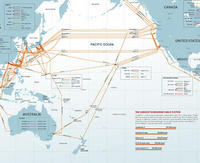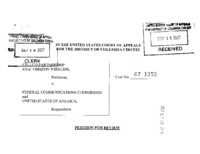
Steven Levitt points out there are other ways to measure the
effects of a military action than listening to politicians or generals,
and the Internet can promote the production of such measures,
and the analysis of them by multiple parties.
On several measures, M.I.T. professor
Michael Greenstone
finds results of the U.S. “surge” in Iraq to be mixed.
Then he brings in another measure:
The most interesting part of Greenstone’s paper is his analysis of the
pricing of Iraqi government debt. The Iraq government has issued bonds
in the past. These entitle the owner of the bond to a stream of payments
over a set period of time, but only if the government does not default
on the loan. If Iraq completely implodes, it is highly unlikely that
these bonds will be paid off. How much someone would pay for the rights
to that stream of payments depends on their estimate of the probability
that Iraq will implode.
The bond data, unlike the other sources he examines, tell a clear story:
the financial markets say the surge is not working. Since the surge
started, the market’s estimate of the likelihood of default by the
Iraqi government has increased by 40 percent.
—
Is the Surge Working? Ask the Data, Not the Politicians,
By Steven D. Levitt,
Freakonomics,
September 15, 2007, 11:55 am
This kind of analysis seldom gets written for traditional channels
because (2) there’s no academic incentive for it and (3) the only money
in it is usually from special interests.
Here’s the main point:
1. This paper shows how good economic analysis can contribute in a
fundamental way to public policy. Anyone who reads Greenstone’s article
will recognize that it is careful and thorough. It is even-handed and
apolitical. It combines state-of-the-art data analysis techniques with
economic logic (e.g., using market prices to draw conclusions about how
things are going).
…
4. The internet can potentially solve both problems (2) and (3) above,
leading to an increased supply of good, timely analysis. If people like
Greenstone can immediately get their findings into the public debate
through the internet, it gives a real purpose (not just an academic
one) to doing the work. In addition, there are now online peer-reviewed
academic journals that have greatly sped the time from submission to
publication, potentially increasing the academic payoff to someone like
Greenstone. With many respected economists now blogging, there is also
a vehicle for these folks to weigh in on the quality of policy-related
economic writings — like I am doing in this blog post.
If the Internet helps focus many eyes on bugs and make them shallow,
why can’t it do the same with political and military actions?
Right now it can.
Without net neutrality it wouldn’t be able to.
-jsq
 Many good papers on aspects of universal service at the
Benton Universal Service Project:
Many good papers on aspects of universal service at the
Benton Universal Service Project:








